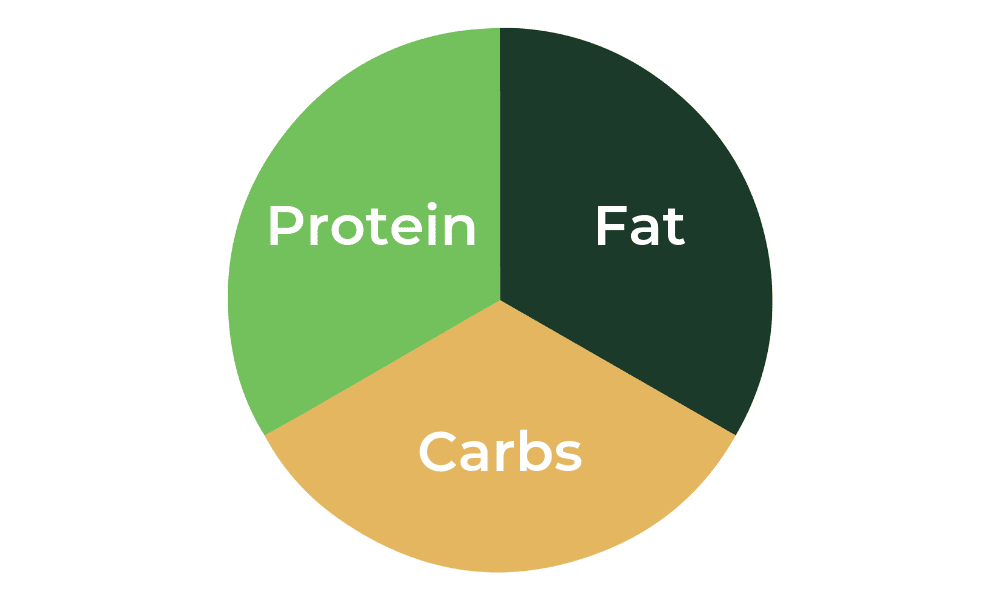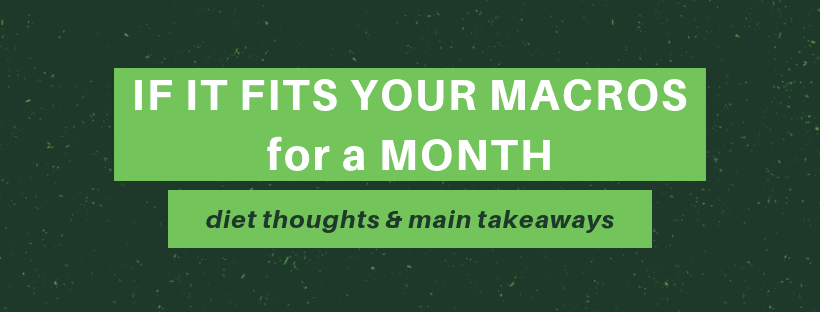So what are macros anyways? “Macros” is short for macronutrients which are carbohydrates, protein, and fat. These macronutrients are the foundation of the “If It Fits Your Macros” diet.
What is IIFYM?
If It Fits Your Macros (IIFYM) is a diet plan with focus of helping individuals reach their health goals while tracking their macros rather than focusing solely on calories. This diet has been especially popular in the sports and bodybuilding community.

Thoughts
Nutrition is something that is completely different for each person. In order to get your individualized macronutrient distribution percentages, it’s best to consult a registered dietitian. Try to avoid the numerous online calculators which can give you inaccurate numbers or exaggerated caloric needs. For example, when I inputted my goal of gaining muscle into some of these calculators, they gave me crazy numbers like needing 150 grams of protein a day or to eat over 3,000 calories.
I consulted a RDN at the Kendall Reagan Nutrition Center to get my resting metabolic rate and body composition in order to then calculate accurate numbers. My customized plan had me slightly calorie surplus to eat about 2,000 calories/day and follow a 50% CHO, 30% fat, 20% protein breakdown.

Next, I tracked my food in MyFitnessPal. I upgraded to the free one month trial of MyFitnessPal Premium as there were a few more cool features here. On this app, it breaks down daily food into macros and shows how many grams of carbohydrates, protein, and fat are left for the day.
Throughout the process, I ate lots of lean protein sources like salmon, chickpeas, greek yogurt, chicken, eggs, and tofu. (Although, technically I could eat pretty much anything so long as it “fit within my macros”). Some of my favorite recipes to prepare were my nut-crusted salmon with roasted vegetables, egg frittata sliced up, and peanut butter-packed overnight oats. I ate most of the same things over and over so I didn’t have to deal with inputting a new recipe or food. During this time, I worked out about 5 times per week with a mix of weight training and cardio.

When I reassessed my body composition after 4 weeks, I had gained one pound of muscle. Although this initially excited me, I realized I was overall frustrated with the amount of time I had to invest in this process. I spent close to 30 minutes everyday inputting food and obsessing over my diet, trying to make it fit my macros perfectly.
I am back to my regular diet and workouts now–no tracking involved. The only thing I am doing differently is being more mindful of incorporating more lean protein into my diet, as this was an area I was lacking on. By checking in with a bioelectrical impedance scale, I’ve continued to gain small bits of muscle. However, aside from the scale, I’m all about non-scale victories:
- Seeing other numbers drop like pants sizes, waist inches, or health-related numbers
- Being able to run faster, lift heavier, or hike longer
- Getting more fruit and vegetable servings in throughout the day
- Noticing clearer skin, healthier hair, and stronger nails
- Feeling more energetic and focused

Being able to have a healthy relationship with both your body and food is no easy task. This is an area I’ve always struggled with—especially with the body image messages we are bombarded with. I have found freedom in ditching all the diets and listening to my body with Intuitive Eating instead. At the end of the day, regardless of clothing size or muscle mass, a healthy body is a body that can serve us well.
Takeaways
Like most all diets, If It Fits Your Macros has both pros and cons.
Pros: This diet focuses more on nutrients rather than just strictly counting calories. By sticking to a certain macronutrient breakdown and adjusting with a dietitian as needed, this diet may help dedicated individuals reach their fitness goals.
Cons: This diet still requires strict tracking to ensure macronutrients goals are being met. This can become tiresome and difficult in everyday life. This diet can also be abused and may give individuals an excuse to eat unhealthy as long as it falls in line with their macros.
Main Takeaways: If It Fits Your Macros is a diet that may be hard to stay on long-term. However, it may help individuals bring awareness to their overall diet and help them find a healthy macronutrient balance. If you are curious if this diet could fit into your lifestyle, seek advice from a registered dietitian for accurate recommendations.









0 Comments